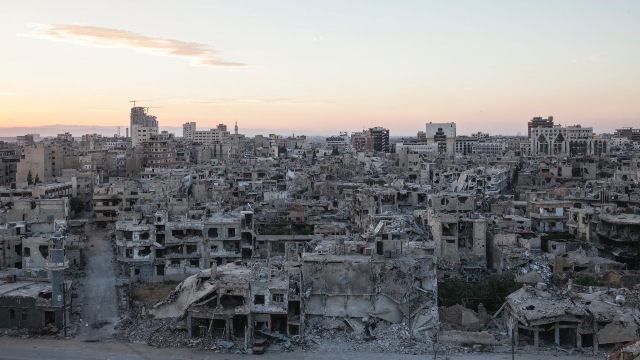Alwaght- “There’s no place like home” is an expression that has both lost and gained meaning in a world where home is no longer a place but rather a memory of what used to be. In a world where houses become piles of rubble: windows are shattered, doors are knocked down, and ceilings crumble down, home is no longer made of bricks. In a world where countries are invaded, their people are victimized, sovereignties are violated, and security debilitated-- home is no longer a place either. Instead, the twofold notions of a home, land, and homeland have lost their concrete wholeness while their abstract fragments have been scattered in the backpacks of wandering refugees.
The Figures
The United Nations has estimated that the number of people who have been forced in to displacement around the world exceeded a shocking 60 million in 2015.
"2015 is on track to see worldwide forced displacement exceeding 60 million for the first time - 1 in every 122 humans is today someone who has been forced to flee their homes," it said. The total figure at the end of 2014 was 59.5 million.
20 million refugees, which comprise one third of the total number, have fled wars and persecution while about 34 million have been internally displaced since mid-2015.
"Never has there been a greater need for tolerance, compassion and solidarity with people who have lost everything," were the words of Antonio Guterres, U.N. High Commissioner for Refugees, who released a statement on the crisis.
Knocking on Syria’s door
Damascus has opened its doors to civilizations, to history, and to culture. However, for the past five years, the city of jasmines has perfumed itself with the scent of blood. Struggling to survive the domestic violence it is going through, Syria has been rarely answering the door to knockers, let alone, invite them in for tea.
Many refugees have been forced to flee the conflict. Far away from home, they haven’t been able to substitute their motherland.
Safa Albunni is a Syrian refugee living in Sweden. She says the country that has received her as a refugee doesn’t compensate for the distance from Syria.
“The homeland is everything. It is place and time. Syria was and will remain my homeland and nothing will make up for it even in this situation. The country of refuge is not my country and it will never be. Sometimes I feel humiliated because people speak a language I don’t understand. I feel I am missing something. I miss everything in Syria,” she told Alwaght.
The old Syria is no longer present. As it folds in to the memories of Syrians, hope for a reconstructed Syria is building up to fill the emptiness left by the impression of witnessing the destruction across the country.
When asked whether she foresees her return, Albunni said:“Nothing is impossible and God willing I will return and Syria will return better than it was but not that quickly. I think it will take a long time because the war is ongoing and when it ends rebuilding a free Syria will take time.”
After long years of homelessness, with only backpacks perched on their shoulders, many Syrian refugees believe they will return to Syria, knock on its door, and will receive a warm welcome. Only then will they be able to say: “It’s good to be home.”
Wandering
While the refugees come from many conflict zones including Afghanistan, Iraq, Somalia, and South Sudan, they have been mainly driven by the Syrian war. Since 2011, 4.2 million Syrians have fled the country and another 7.6 million have been internally displaced, according to the UN.
Whether within Syria where millions have been impelled to leave their homes which have become conflict zones, or outside Syria where they face new hardships, Syrians have lost the homeland they once knew as they wander until they can call it home again.
Now all they can do is wait for the war to stop to rebuild their home—Syria— brick by brick; house by house, street by street, city by city and most importantly its security.



























